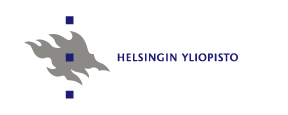Opintopiirikurssit - opiskelijan opas
(Study circle courses – a guide for students)
Jaakko Kurhila & Heikki Lokki, "Opintopiirikurssien opettajan opas, Liite 5", HY/TKTL 2005
No one but students themselves can make learning happen. No one will do it for you. Learning always involves work, and it is seldom fun all the time; however, the learning experience is often rewarding and brings you a sense of accomplishment. Activeness is a key concept in learning.
Why teamwork? Employers think this is something that has not been taught enough at universities in the past. When you have to explain something to the rest of the group, at least you yourself will understand it. Students learn better in a group, which is evident from the grades.
The group should agree on their common rules and duties from the beginning. Please answer at least the following questions:
- Is it necessary to explicitly cast the members of the group in different roles?
- Who will take responsibility for organizing the work and communications?
- How will the work be scheduled and when will the group meet for teamwork?
- Which media will be used for communications?
If the group cannot seem to work, in spite of honest efforts, any of the members can contact the instructor of the study circle.
Working in a team:
- Help others to succeed.
- Take responsibility for the group as well as yourself.
- Take responsibility for what the group produces.
- Show trust in others by being open.
- Listen to what others have to say.
- Ask others for their opinion.
- Ask others for help.
- Be active, participate – it is nicer to be active than passive.
- Share common data, material and your work methods.
- Support others.
- Criticise issues, not people.
- Complete your own share of the work as you have agreed and on schedule.
Though the course work is carried out in a study circle, you can develop your own work methods and make them more effective. One good way of doing this is to write a summary in your own words of the matter to be learned, and draw concept charts. Another effective way is to imagine you are explaining the matter to an imaginary person without looking in the textbook. Then you have to reproduce the main points of the text, keep the whole picture in mind, and take into consideration the imagined listener's knowledge and skill basis.
Don't forget that you need to set aside a fair amount of uninterrupted time in order to study successfully.

